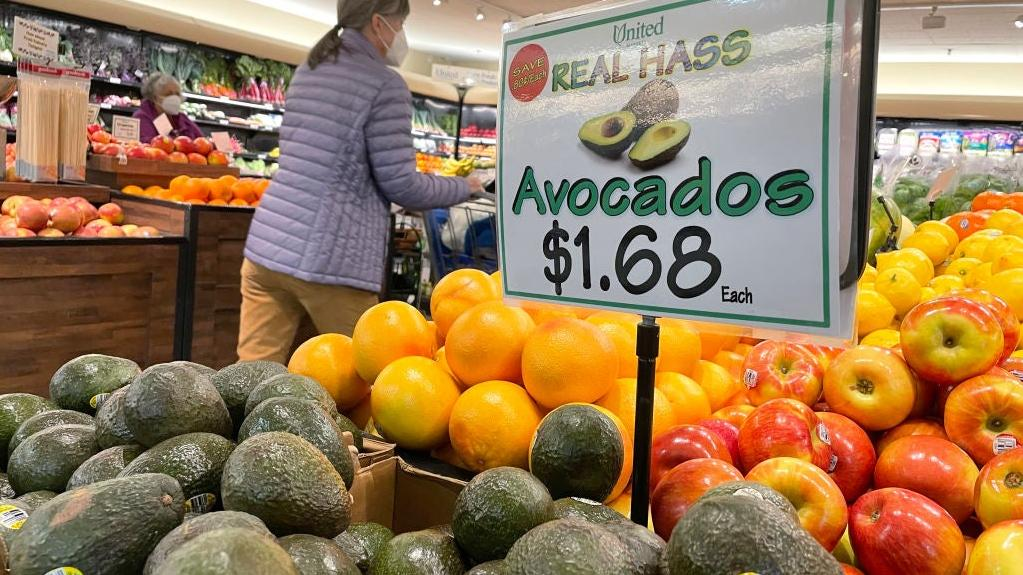'Natural Flavors' Doesn't Mean Shit
A Fruit Gushers lawsuit centers on "artificial" flavoring. But what does that mean, really?
I've got a sixth sense of sorts. It activates if anyone, anywhere, maligns the good name of Fruit Gushers. My sense was activated this morning, when I discovered that an Illinois woman has launched a class action against General Mills alleging deceptive Gushers marketing. Specifically, the plaintiff takes issue with the brand's "no artificial flavors" promise.
All right, lady. Let me tell you something: There's nothing natural about a snack that gushes. There's also nothing natural about consuming a peacock-colored fruit snack. Everything about a Fruit Gusher is preternatural, and that's why they're so delicious. If you're treating yourself to a Gusher feast—which I do, often—there's simply no use speculating about the artificial nature of the thing.
More importantly, this class action suit perpetuates a myth we need to stop believing: that claims of "natural flavors" mean anything at all. In reality, "natural flavor" is listed as an ingredient in everything from spiked seltzer to plant-based meat—but the term isn't regulated in any useful capacity. Similarly, claiming that a product contains "no artificial flavors" is effectively meaningless. (Not that it'll stop me from enjoying Gushers. Ever.)
What are “natural flavors”?
The term "natural flavor" or "natural flavoring" is defined by the FDA as "any product of roasting, heating, or enzymolysis, which contains the flavoring constituents derived from a spice, fruit or fruit juice, vegetable or vegetable juice, edible yeast, herb, bark, bud, root, leaf or similar plant material, meat, seafood, poultry, eggs, dairy products, or fermentation products thereof, whose significant function in food is flavoring rather than nutritional."
In other words, "natural flavor" is any flavoring extracted from plant or animal matter. You know—the natural stuff.
Meanwhile, the FDA defines the term "artificial flavor" as "any substance, the function of which is to impart flavor, which is not derived from a spice, fruit or fruit juice, vegetable or vegetable juice, edible yeast, herb, bark, bud, root, leaf or similar plant material, meat, fish, poultry, eggs, dairy products, or fermentation products thereof."
The problem with “natural flavors”
The Gushers class-action suit centers on one flavor additive: malic acid. We've reported on this stuff before; it's the compound that gives sour candy (and fruit snacks like Gushers) that signature tart taste. Here's where things get confusing. Malic acid occurs naturally in fruit—but it can also be produced synthetically from petroleum. The case cites "laboratory analysis" suggesting that Gushers contain DL-malic acid, an artificial mixture of naturally occurring L-malic acid and artificial D-malic acid. This, the plaintiff argues, qualifies as an "artificial" flavor.
First, it must be said: I love the idea of in-depth laboratory analysis of a single Fruit Gusher. Open-Gusher surgery, if you will.
But I've got a lot of quibbles with the issues presented in this case. My central quibble lies with the idea that "artificial flavors" and "natural flavors" are mutually exclusive. First, as evidenced by the FDA's definition cited above, the term "natural flavor" by no means refers to entirely un-manipulated fruit flavors. Yes, "natural flavor" is derived from organic matter—the biological definition of "organic," not the buzzy definition—but companies can leave it on their product labels regardless of what happens after the flavor is extracted.
Medical researcher Matthew J. Goodman explains further in a paper published in The Food and Drug Law Journal. "In reality, 'natural flavors' are a far cry from what consumers might expect, as they can contain both artificial and synthetic chemicals (often used as processing aids)," Goodman writes.
The fact is that we're surrounded by "artificial" compounds. And if you're scared of unnamed "chemicals," I've got news for you: every substance in the world is composed of chemicals of some sort. Even if you skip the Fruit Gushers in place of an apple from the produce section, there's a big chance that that apple has come into contact with a number of chemicals in groundwater, soil, and during the cleaning and transport process.
My goal isn't to freak you out, readers. My goal is to debunk the idea that any claim on food packaging can be taken at face value. Food companies betray our trust all the time, in big ways and small ways. For those who don't have the time for a class-action suit, advocating for consumer education might be best.
